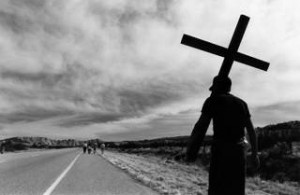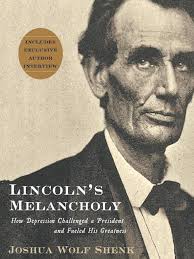The author finds that sometimes his church family is too judgmental.
Mood music:
[spotify:track:3p7XSsT6AFs9lCkv6FtLbj]
Father Mike went on another tirade against politicians in his Homily yesterday. He always makes a lot of points I agree with when it comes to politics and corruption, but this time I walked away feeling that he was judging people in a way we’re not supposed to do.
His main gripe was against the idea that there are people who will vote for pro-choice politicians even though they are pro-life. He called it “Political Schizophrenia.” [For more context, here is where I stand politically]
He then went on to say that politicians are all about keeping their own power, and how the removal of God from public life has gone too far.
I agree with him on some of that, particularly when it comes to schools not putting up Christmas decorations in December because it might offend someone. Separation of Church and State is often interpreted as the removal of God from government affairs. What it’s really about is government not forcing a particular religion on citizens and giving us the freedom to worship or not worship as we see fit. Schools should be teaching kids about all religions and how they reflect various aspects of global culture.
But I’m getting off track here. What really irked me yesterday is that Father Mike was painting all politicians with one brush. But reading between the lines, he was painting all DEMOCRATS with one brush. He noted that politicians are trying to remove the people from government and simply enact laws telling us all how we should live.
But the Church is made up of people who do the same thing.
Are there a lot of dirt bags out there who are Democrats? Absolutely. But there are a lot of dirt-bag Republicans in the world, too.
Just like there have been pedophile priests and priests who fought hard to expose the former.
My point is that we ALL struggle. We’re all broken in some way. It can be an addiction or an illness. It can be the way you conduct your business. Father Nason, our pastor, did a brave thing years ago and went public about his battle against alcoholism. As a recovering addict, I love him for that.
To lump one group into the “no hope” corner is wrong.
We are all people, and people screw up every day. God knows I do.
I’m reminded of the story where the people wanted to stone a woman to death for cheating on her husband. Jesus’ response was that “He who is without sin should cast the first stone.”
We’re all sinners. We could all do better. And yet we judge others anyway.
I do it, too.
I guess when we judge someone else, it makes us feel better about ourselves and makes us forget about the ghosts in our own souls.
But it’s a hollow, unsatisfying thing.
Judging others and thinking of oneself as better or above someone else is a disease that runs deep in the Catholic community. I’m sure it exists in the Baptist community, Jewish community and so on. But I’m part of the Catholic community, so I’ll stick with what I know.
I’ve seen educators in my parish put down other people behind their backs because they made a mistake or wasn’t skilled enough at a sport. I’ve seen fellow parishioners lump whole groups of people in the trash can of society because those people are not as pious as they are.
It’s human nature. We ALL do these things. Including me.
But it is wrong, and we could all do better.
Judging others despite one’s own flaws is also a disease that must be identified, managed and driven into remission.
Some of you are probably asking why I stick with a Faith that can be so flawed. My answer is simple: Every church, no matter the denomination, is made up of people who are broken, just like the government is.
But I show up because I believe Jesus died for my sins and is the only one who can save me from myself. What He did for everyone is what matters.
The misguided people who attach themselves to the church, the politics and the judgmental nature of faith communities is beside the point. These things are distractions.
To put it another way, my faith is all about my personal relationship with God.
Everything else is crap.
Some people might think less of me for being a devout Catholic. Some in the Catholic community might read this post and be angry with me.
Either way, so be it.








